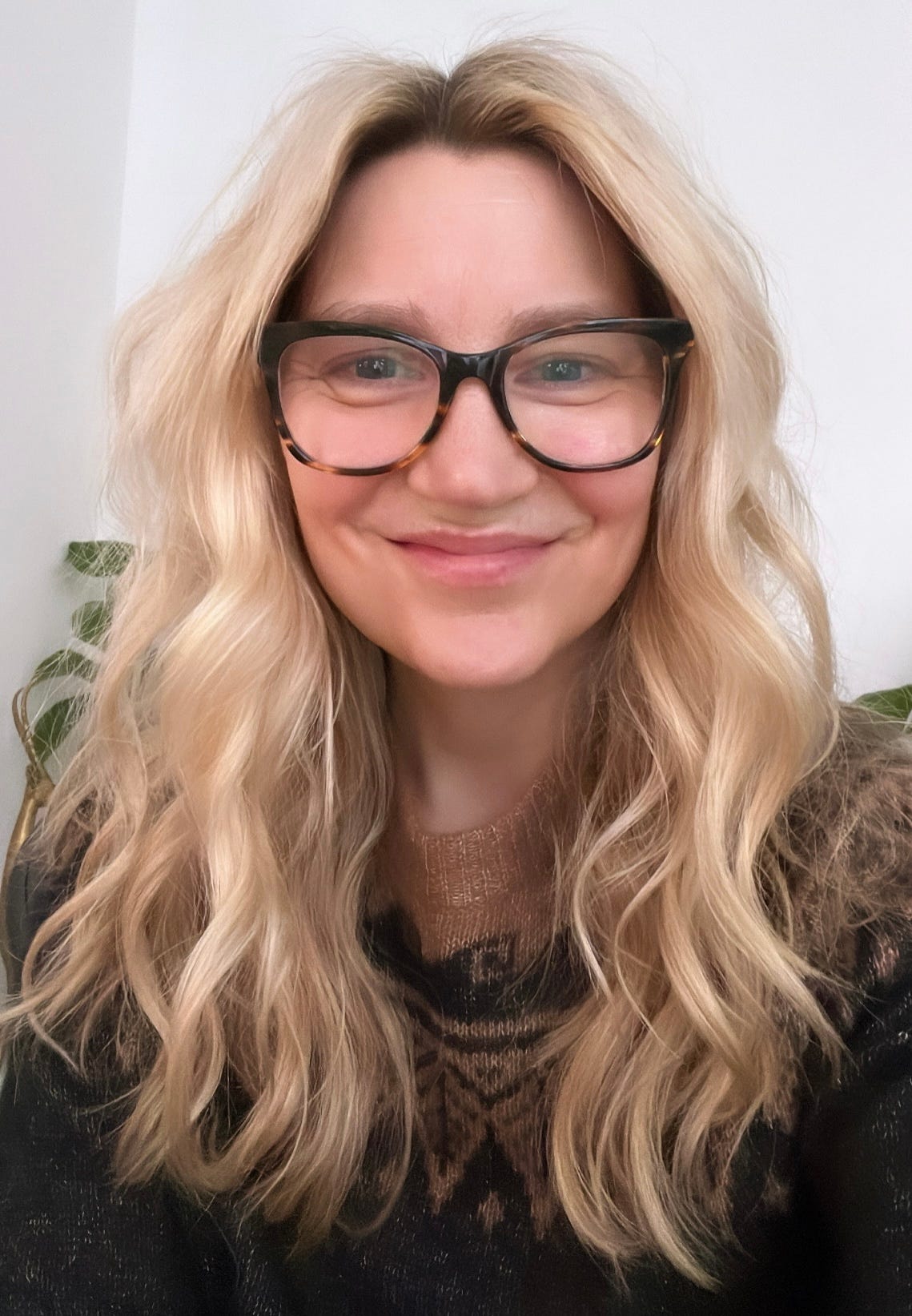👋 Hello! This is Suzan. I write about leadership and interview leaders from tech companies like Etsy, Github, Google, Netflix, and Spotify who share their insights on how they overcame a challenge.
I've been publishing Suzan’s Fieldnotes for two and a half years. In that time I’ve featured 49 leaders, have written 73 essays, and created a total of 130 editions. Like anywhere you've lived for a while, things get a bit messy. So, I've tidied up to make it easier to navigate — there's now a tab for leader interviews and a tab for essays.
Me, aglow after working with a leadership team
One of my favorite questions for guests on my series is whether they expected or wanted to be in leadership. I'm fascinated by how people step into the role -- whether it was intentional or more organic.
There's this belief that those in leadership roles relish power and control. Some do, but in my experience, this isn’t the most common reason. When I surveyed tech leaders, only 11% said they did it for more autonomy — which you might read as control. Rather than wanting to hold power over others, 34% took the role to create a positive work environment for others. Others found themselves in a role by chance or because they stepped into a leadership void.
My leadership journey was rather organic. I didn’t have a career plan. In undergrad and grad school I studied what fascinated me — namely human behavior in groups. I studied organization development and leadership in school because I was interested in how systems work, how people work within systems, and how change happens. My only career goal was to work with human and organizational systems.
I never expected to lead a business unit or become a COO. I wasn’t striving for leadership — I was striving to have a positive impact. This led me to discover and step into leadership voids and ultimately, to titled roles.
On Becoming a COO
The first leadership void I remember stepping into was early in my career as a project manager for an interactive agency. My first project was managing the build of American Airlines' first website. We lacked tools and processes, so I started creating them and sharing them with my peers. I was rapidly promoted twice — into a senior role and then as head of the project management department. This work taught me how to collaborate across a company and even outside with vendors and clients.
Though I didn’t think of myself as a leader at the time, that experience was the genesis of my leadership philosophy. It’s also the origin of Constellary. To quote the site…
“Leadership isn’t an individual endeavor, it’s a shared experience. Leaders are a node in a bigger constellation. This means rather than relying on our own effort, we must work as a collective.”
Looking back, I realized that managing large projects across multiple entities so early in my career taught me to think organizationally, which set me on the path to becoming a COO.
My experience working as a field executive for the Girl Scouts leading 500 adult volunteers taught me to rely on influence rather than positional authority. However, it didn’t prepare me for others’ perceptions of my power. It was my first time in a C-suite role. The dissonance between how I saw myself and how others saw me as a COO was bewildering at times. Even though I treated others as partners and tried to be as transparent as possible, some were skeptical because of the title. It taught me to pay close attention to power dynamics — both real and perceived.
Even though I understood the dynamic nature of orgs, being a COO taught me just how complex it is to navigate them as a leader. That creating and nurturing company culture is far more challenging than it looks from the outside. That scaling decision-making is essential but complicated as business phases change. That leading through an acquisition is like steering a rollercoaster through unfamiliar terrain.
Being a COO was the hardest and perhaps best thing I’ve done. I might cringe at some of my decisions but I don’t regret taking the ride.
My Podcast Episode
I’ve written about my biggest regrets and how I nearly burned out as a leader. I’ve talked about the three philosophies that shaped me. After several requests, I thought it was time to share my leadership story to become a COO. So this week, I’m sitting in the guest chair, while Extrology podcast host Lee Cooper interviews me.
We trace the origins of my story, how my COO role came about, why I took the position, and what I learned from the experience. If you’re interested in hearing about my journey to COO, tune into episode 25 of Leaders Unscripted.
Here’s a brief snippet from our conversation.
As always, thank you for your support of this substack and the leaders featured! You can read all of the past interviews and learn more about how Constellary supports companies and leaders here.
If this piece resonated with you, please let me know and give the heart button below a tap.




